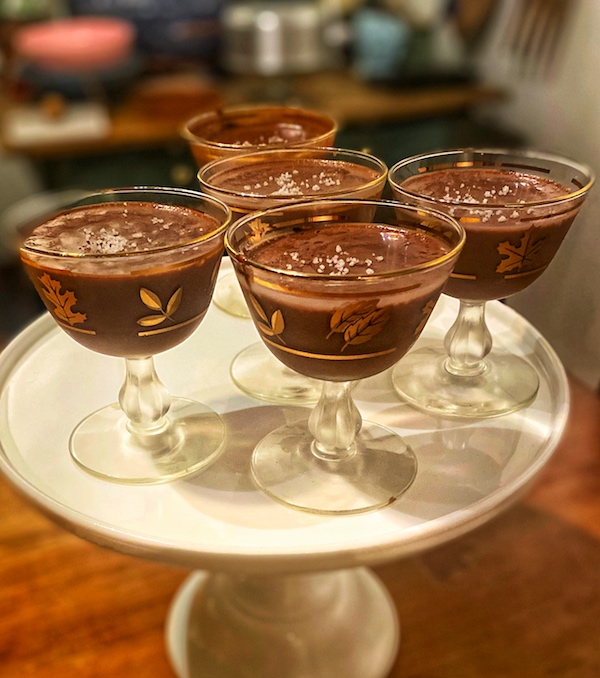(From the perspective of a middle American, male, in his late 60s)
Several times a year, during family visits, I enjoy debating with my Step Father Richard. In between running around with the kids, we find a bit of time to sit down and have a quality adult chat. Since we’ve banned all political discussions (we agree to disagree) we find ourselves talking about other topics. Last week, it was organic foods. With Family Eats as our daily lifestyle, it was interesting to hear the other side of the ongoing “Organic” conversation.
And, after a discussion with Richard, I learned of his concerns and questions about organic . . the underlying reason why he is not convinced that buying organic foods is an imperative.
In general, Richard has a perception that all organics are higher priced and if there is no diect benefit to his health, then there is no reason to buy. “Yes, from what I hear, its better for you, but organic is not top of mind for me” he said. “A ll I hear is that organic food is a good thing, but to me, I am not convinced that conventional food is bad. And, I feel as if organic producers and consumers look at those of us who don’t consume organic foods as bad.”
The Organic concept and life stye can be confusing. Hearing Richards concerns, which are felt by a large group of consumers, I felt it important to embrace and understand these relative questions. Then, we can take this information and help people understand, and further our own knowledge, the benefits of “Organic”.
The following are a few questions he had for me:
Richard: I am not convinced that organic food is a better choice than conventional foods. Why should I buy organic foods?
FE: Organic agriculture has numerous benefits to our health, that of the environment, and to the workers who produce these foods. For instance, the synthetic pesticides and fertilizers used in conventional farming are not used for organic agriculture. Residues of certain chemicals, including DDT, PCBs, dioxin and many pesticides can be found in concentrated forms in animals feed non-organic diets.
As stated on the Georgia Organics web site, “Many pesticides approved for use by the EPA were registered long before extensive research linking these chemicals to cancer and other diseases had been established. Now the EPA considers that 60 percent of all herbicides, 90 percent of all fungicides and 30 percent of all insecticides are carcinogenic.”
Instead of controlling the environment with chemicals, organic agriculture strives for a healthy balance of the soil, utilizing crop rotation and other techniques that improve the soil’s fertility.
Aside from the direct impact on the health of our bodies, organic agriculture has been shown to save energy, protect farm worker health, aid small farmers, prevent soil erosion, and protect water quality.
(to read more from Georgia Organics, visithttp://www.georgiaorganics.org/)
Further, according to the Organic Trade Association website:
Growing crops in healthy soils results in food products that offer healthy nutrients. Although there are numerous studies that find there is no direct correlation between organically grown products and their healthful benefits, there is mounting evidence that organically grown fruits, vegetables and grains may offer more of some nutrients, including vitamin C, iron, magnesium and phosphorus, and less exposure to nitrates and pesticide residues than their counterparts grown using synthetic pesticides and fertilizers.
A French researcher’s review of scientific findings concerning organic products has confirmed the high nutritional quality and safety of food produced using organic practices. The literature review, prepared by Denis Lairon of the University of Aix-Marseille in France, was commissioned by the French Agency for Food Safety (AFSSA). Lairon notes there are nutritional benefits to organic produce, such as more dry matter, minerals and antioxidant micronutrients than their non-organic counterparts. Meanwhile, studies show organic foods have significantly lower amounts of nitrates and residues of toxic chemical pesticides, fungicides and herbicides than do non-organic foods. This article appeared soon after much press coverage of a British article in-press in The American Journal of Clinical Nutrition that concluded there wasn’t much difference in nutrient density between organic and non-organic foods. That article, however, prompted criticism that it didn’t look at all the attributes of organic products and included studies dating back 50 years that did not have clear parameters on whether products examined were truly organic. One of the confounding factors in comparing the nutritional aspects of organic and conventional agriculture has been that few studies have been conducted with the scientific rigor required to show definite differences.
Even the authors of the British study acknowledged that although they did not see documented significant nutrient differences between organic and conventional food, they did not rule out that possibility. Lairon noted that current organic agriculture practices have the potential to produce high-quality products with improved antioxidant content, and lower nitrate accumulation and toxic chemical residue levels. What is needed now is additional research support to give organic farmers tools such as improved cultivars that are disease-resistant, to help grow organic production from a “niche” to sustainable agriculture worldwide.
Source: Denis Lairon, Agronomy for Sustainable Development, 2009http://swroc.cfans.umn.edu/organic/ASD_Lairon_2009.pdf
Richard: How can I be assured that it is organic?
FE: Organic Trade Association:
National organic standards offer U.S. consumers the assurance that all food products labeled as organic in the United States are governed by consistent standards. U.S. organic standards, as implemented in 2002, allow four different labeling options based on the percentage of organic ingredients in a product. These include three distinct categories, and a fourth option for products that contain organic ingredients but not at a high enough level to meet one of the three labeling categories: 100 percent organic, organic, and made with organic.
For more information, visithttp://www.ota.com/news/press/186.html
When you purchase an organic product, you’re supporting organic agriculture, a production method which strives to maintain biological diversity while replenishing soil fertility and eliminating the use of chemical pesticides and fertilizers. Because the husbandry practices used by organic farmers require a level of attentiveness and care incompatible with industrialized operations, you’re also supporting farmers who work with the health of their animals in mind.
Certified organic growers are inspected by third-party independent certifiers in order to qualify for organic certification, and they also follow strict guidelines for safe and hygienic food production. As with all food producers, they must be in compliance with local, state and federal health standards.
Conventional and organic agriculture both use manure as a part of regular farm soil fertilization programs. Certified organic farmers, however, must maintain a strict farm plan detailing the methods used to build soil fertility, including the application of manure as mandated by the Organic Foods Production Act of 1990. No other agricultural regulation in the United States imposes such strict control on the use of manure.
Richard: I have an issue with price. When organic produce can be twice the price of conventionally grown produce, I feel as if they’re taking advantage of me–the consumer.
FE: From Whole Foods:
Although many organic products do cost more, the price of organic foods is increasingly competitive as supply and demand continue to rise. Larger retailers, like Whole Foods Market, are emerging with the capacity to buy and sell organic products at higher volumes, which leads to lower prices for organic food products. However, it is important to remember that prices for organic products reflect many of the same costs as conventional items in terms of growing, harvesting, transportation, and storage, but organic products must meet stricter regulations governing all of these steps. Therefore, the process is often more labor and management intensive. Organic farmers have an added cost of compliance with organic certification standards and government programs do not subsidize organic farming.
From The International Federation of Organic Agriculture Movements (IFOAM), a grassroots and democratic organization that currently unites 750 member organizations in 116 countries:
Certified organic products are generally more expensive than their conventional counterparts (for which prices have been declining) for a number of reasons:
- Organic food supply is limited as compared to demand
- Production costs for organic foods are typically higher because of greater labor inputs per unit of output and because greater diversity of enterprises means economies of scale cannot be achieved
- Post-harvest handling of relatively small quantities of organic foods results in higher costs because of the mandatory segregation of organic and conventional produce, especially for processing and transportation
- Marketing and the distribution chain for organic products is relatively inefficient and costs are higher because of relatively small volumes
As demand for organic food and products is increasing, technological innovations and economies of scale should reduce costs of production, processing, distribution and marketing for organic produce.
Prices of organic foods include not only the cost of the food production itself, but also a range of other factors that are not captured in the price of conventional food, such as:
Environmental enhancement and protection (and avoidance of future expenses to mitigate pollution): For example, higher prices of organic cash crops compensate for low financial returns of rotational periods that are necessary to build soil fertility; Higher standards for animal welfare; Avoidance of health risks to farmers due to inappropriate handling of pesticides (and avoidance of future medical expenses); Rural development by generating additional farm employment and assuring a fair and sufficient income to producers.
If purchasing all organics is a stretch for your pocketbook, start with the Dirty Dozen made available by the Environmental Working Group.
Richard: When I think about organic foods, I think about fruits and vegetables, rarely about meat and poultry. And, when I see the prices of organic meats and poultry, which can be three times as much as regular meat and poultry, I refuse to pay the price.
FE: Animals raised organically are not allowed to be fed antibiotics, the bovine human growth hormone (rbGH), or other artificial drugs. Animals are also not allowed to eat genetically modified foods. Further, animal products certified as organic cannot have their genes modified. Additionally, Animals raise organically are fed 100 percent organic feed without ground up animal parts, which has been proven to be the cause of bovine spongiform encephalopathy, the disease that destroys the central nervous system and brain, can be given to humans who eat the cows.
The link below is the comparison from the Organic Trade Association:
Organic vs. Conventional Livestock Production: A side-by-side comparison
Richard: I want to find out more about organics, but I’m not sure where I can find objective articles.
FE: There is a large amount of information available which highlights a multitude of other issues associated with organic agriculture. The following page contains some websites which may help answer your questions more fully.
- For more information on the benefits of consuming organic foods, go to OTA’s consumer website.
For us at Family Eats, all of Richards questions, concerns and feelings about Organic food are familiar. Questions we all have asked ourselves at one time or another. Why is it so emotional and confusing? Because its Change. Changing your relationship with food is about the health aspect of day to day living. Figuring out how to make it affordable and the most nutritious is the long term commitment and lifestyle.
(BTW – Richard just returned from the grocer store with a few organic items, one which included Organic Ketchup. He was surprised to find out that the 24-ounce bottle only cost $1.99. I think this is the beginning of something new for Richard)





